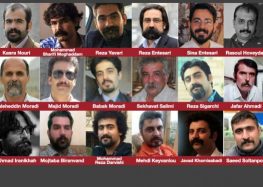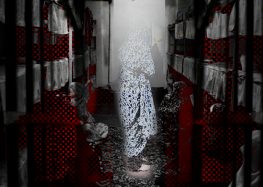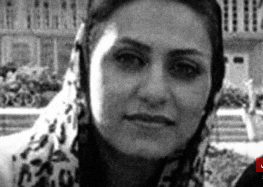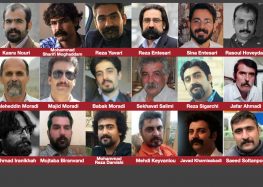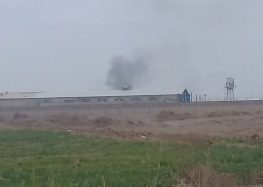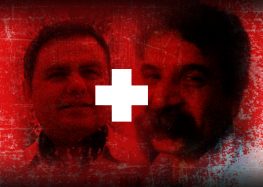Iranians Debate Use of Violence Against Security Forces After Clashes With Sufi Gonabadis Leave Three Dead
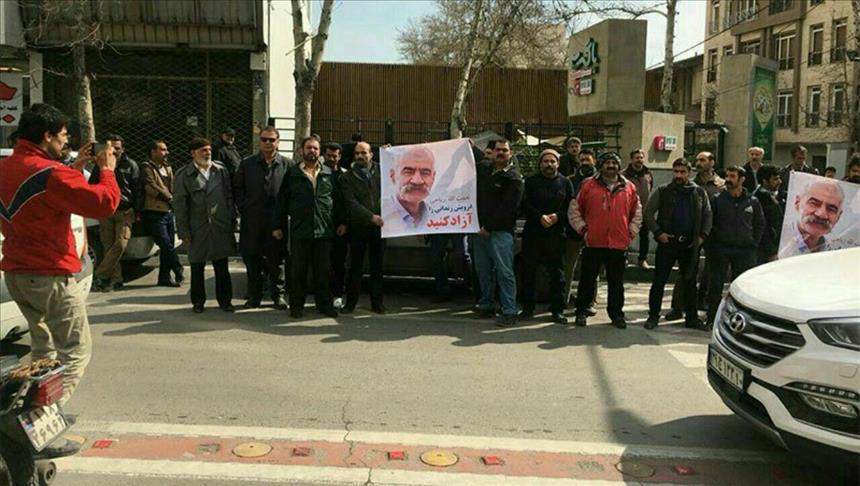
Clashes among members of a predominantly peaceful minority faith in Iran and security forces have resulted in a discussion on social media among Iranians about the use of violence as a form of self-defense.
“Mr. Dervish! There is no common ground between peaceful protest, sticks and Molotov cocktails. Don’t become fodder for this fire. Smoke from this fire will blind you first,” tweeted Maziar Khosravi, the political editor for the reformist Shargh newspaper, on February 19.
Abdollah Ramezanzadeh, a senior reformist politician, tweeted, “The terrorist bus attack against the police is an unacceptable act that leads to more violence. Resorting to violence by anyone is condemned.”
Secular journalist Nazli Kamvari, wrote, “Terrorism has a clear definition: it is an attack on civilians with the intention of spreading public fear. For a journalist to attribute terrorism to the dervishes without looking at the violent circumstances is an unfair attempt to justify suppression by the security forces.”
Three policemen and two members of Iran’s Basij militia were killed and hundreds of protesters were arrested after two days of confrontations between followers of Iran’s persecuted Muslim Sufi Gonabadi Order (referred to as Gonabadi dervishes) and security forces in Tehran.
Police officials said 300 people were detained in Tehran but Gonabadi sources pointed out that demonstrators in other Iranian cities were also arrested, resulting in a much higher number of total arrests.
“The number of detainees is much bigger than what has been reported by government news outlets and has possibly surpassed 3,000,” reported Majzooban Noor, the Gonabadis’ official channel on the Telegram messaging app, on February 20, 2018.
“Many of these arrests have taken place at entrances to cities, at airports and bus terminals,” added the report.
At a press conference on February 20, a spokesman for the Tehran police, Saeed Montazer al-Mahdi, announced casualties among the police and the volunteer Basij militia.
“During last night’s disturbances on Pasdaran St. [in Tehran], in addition to the martyrdom of three policemen, two of our dear Basijis were also martyred by this superstitious cult.”
The Gonabadi dervishes believe in a different interpretation of Islam than that of Iran’s ruling Muslim Shia establishment. The Islamic Republic views any alternative belief system, especially those seeking converts, as a threat to the prevailing Shia establishment and has imprisoned members of the Sufi order as part of an ongoing persecution campaign.
According to al-Mahdi, the policemen died when a bus, allegedly driven by one of the protesters, ran over them.
Two members of the voluntary Basij militia died after a car hit one of them and the other was attacked with a “cold weapon,” according to the police spokesman, referring to a sharp weapon.
Farhad Nouri, a spokesman for the Gonabadis, condemned the bus attack that killed three policemen on February 19 and said the protesters were acting in self-defense.
“It was the police forces who started the whole story last night, not the dervishes,” he told the semi-official Iranian Students News Agency (ISNA), which later removed the report from its site.
“The dervishes never wanted these incidents to happen. They have always had peaceful rallies. We have to see who wants to take advantage of last night’s events and blame the dervishes,” he added.
Gonabadi Leader Condemns Violence
The 90-year-old leader of the Gonabadi dervishes, Nour Ali Tabandeh, posted a video on YouTube on February 20 calling for his followers to avoid violence while defending their right to defend themselves. But on February 21 he posted an updated message that singled out some dervishes for acting against his “advice and wishes.”
Wrote Tabandeh: “The recent bitter events surrounding my home, which took place against Islamic and spiritual principles with the false excuse that an arrest warrant had been issued against me, brought great sorrow. This riot occurred mainly because of overwhelming emotions, wrong assumptions, ignorance and lack of respect for my explicit orders by some of the dervishes who acted despite my advice and wishes. I do not endorse them in any way and I condemn such acts.”
He also expressed condolences to the families of the police and Basij forces who lost loved ones in the clashes.
The violence began on February 19 when police opened fire on a group of Gonabadis who were protesting in front of the 102nd Police Station in Tehran to demand the release of Nematollah Riahi, a fellow devotee. He had been arrested outside the home of Gonabadi spiritual leader Nour Ali Tabandeh.
Kasra Nouri, a spokesman for the Sufi order, told the Center for Human Rights in Iran (CHRI) on February 19 that he had witnessed many plainclothes agents attacking the protesters with sticks and stones.
He was arrested hours after the interview, CHRI has learned.
The protests have died down but a source close to the Gonabadis, who requested anonymity, said security forces were continuing their search and arrest operations against the faith’s followers.
Images and videos shared on social media on February 20 show bloodied Gonabadi protesters being arrested.
In one video, Mohammad Sharifi Moghaddam, a Gonabadi dervish and student activist, appears with a battered face and says he was beaten and injured by the police.
On February 21, the Fars News Agency, which is affiliated with the Islamic Revolutionary Guard Corps (IRGC), posted a video on Twitter of an injured man in a hospital bed identified as Mohammad Salas who apologized for driving the bus.
CHRI was unable to verify the veracity of the video.
“I don’t know what I was thinking at that moment. I had no intention to kill anyone. I got angry and pressed the gas,” he said. “It was out of my control… It just happened. I give my condolences. What can I do?”
While some Iranians on social media condemned the security forces’ violent response to the protesters, there was also a heated debate over who was to blame.
Responding to Iranian state media reports that have labeled the dervishes as Iranian versions of the ISIS terrorist group (referred to in Iran as Daesh), Stanford University Professor Abbas Milani, tweeted: “The regime introduced Daeshi ideas and behavior in Iran before Daesh ever existed: From ‘revolutionary’ executions by [Ayatollah Sadegh] Khalkhali and [Ayatollah Hossein] Raissi to the murder of innocent prisoners, the suppression of Sunnis, Baha’is and Dervishes and imposing mandatory hijab and stoning women and falsifying history.”
“Violence is against the principle of civil disobedience but primary responsibility lies with the oppressor, not his victims,” he added.
Iranian nationalist journalist Morteza Kazemian meanwhile quoted American civil rights leader, Martin Luther King Jr, “We must learn to live together as brothers or perish together as fools.”
Leftist Iranian activist Amir Yaghoubali also joined the discussion on Twitter: “The ruling establishment does not show any flexibility or compromise on any level. Our tweets won’t create or stop violence. The continuation of the status quo will breed more violence every day. Only change brought about by effective political and social pressure can prevent more violence.”

